by Ashley Lodato
Bluebird Grain Farms staff writer
photos by Aubrie Pick
With a resume that includes culinary leadership at restaurants named for the Pacific Northwest’s most renowned explorers, Executive Chef Dolan Lane might be mistaken for a man who favors hardtack and pemmican. After all, the namesakes of Portland restaurants Clarklewis and Meriwether’s survived quite happily on such fare for more than two grueling years, making their way across plains and over mountain ranges in the quest for western expansion. But although Lane’s menus feature more carefully curated and varied cuisine, there’s one thing Chef Lane has in common with the crews of Captain Meriwether Lewis and Second Lieutenant William Clark, whose parties hunted and foraged their way across the western territories from 1804-1806: he’s partial to locally-sourced, seasonally-available ingredients.
Chef Lane’s culinary roots lie in the adage that necessity is the mother of invention. A south Seattle suburb latchkey kid in the 1970s and 1980s, Lane learned to fend for himself early, coming home after school and making omelets for himself and, often, a few friends, to tide over the hunger pangs until dinner. “I still have a thing for omelets,” he says.
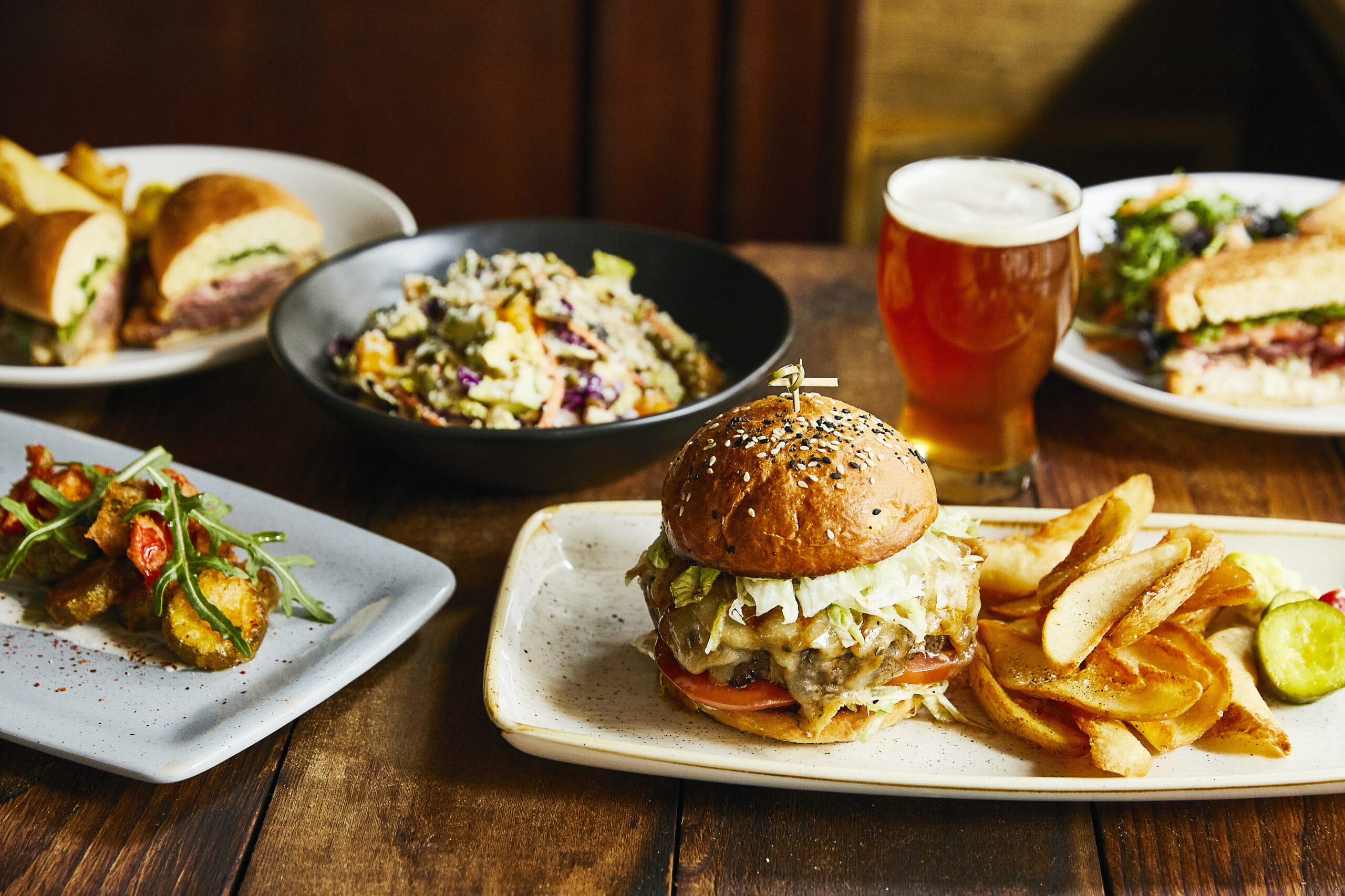
Although Lane’s parents worked full time, his mother always cooked and the family ate at 5pm without fail, winter or summer. “My mom had a great repertoire,” Lane says. “It was always very straightforward and consistent: pork chops, pot roast, a green salad with every dinner. Once a week we’d go out for dinner.”
Before his mother got home from work, Lane would experiment in the kitchen. “My mom would come home and there would be spaghetti noodles stuck to the wall,” he says, “because I’d read that that was the way to test if they were cooked.” (It’s not, and Lane now knows that.)
Lane took his first cooking job at a mom and pop Italian restaurant when he was 17, making pizzas. “Even at that age,” he says, “I loved it. I knew I wanted to be involved in restaurants.”
But instead of following work he found fulfilling, Lane went to photography school. Unsurprisingly, he didn’t stick with it. “I just wasn’t feeling it,” he says. Instead, he spent a summer working at a friend’s resort and subsequently was accepted at the California Culinary Academy. When he graduated, Lane says, “I was young, I was just out of school, and I hadn’t traveled much.” So he got a job cooking on cruise ships, sailing around the Caribbean and Mediterranean working with a crew of 11 in the kitchen to provide meals for nearly 200 guests on the ship. “I had a great time,” Lane says, “and we did a pretty good job with the food, cooking in that environment for so many people.”
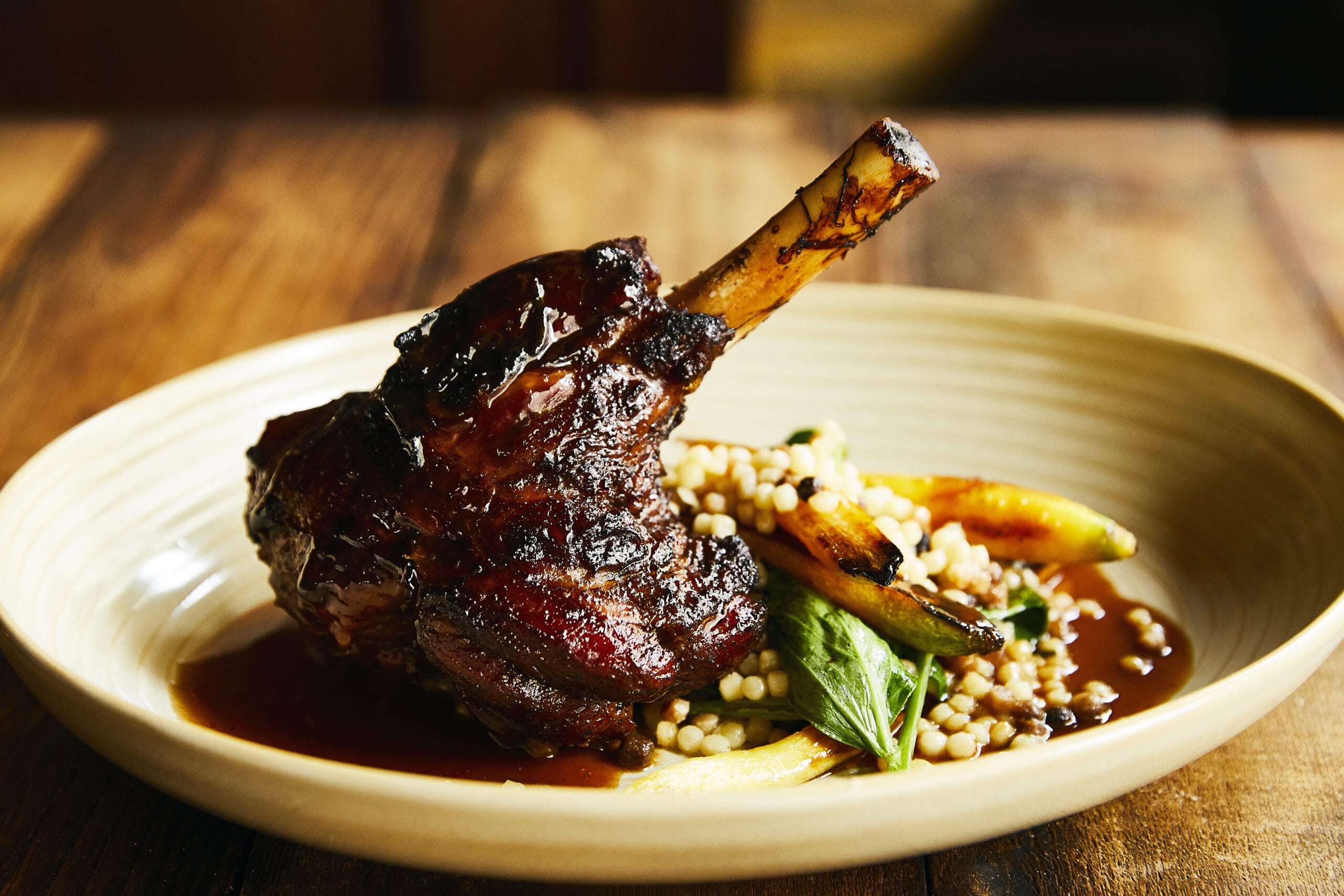
After a stint on a local cruise line running trips from Portland, OR to Lewiston, ID in 1998, Lane spent some time in Portland and has been there ever since, working as chef de cuisine and later executive chef at Bluehour, in addition to Clarklewis and Meriwether’s.
Cooking at Clarklewis was instrumental in Lane’s development of a reputation as a chef with strong ties to farm-to-table philosophy. “Clarklewis really came with a big history,” he says. “That’s when I really started meeting farmers and foragers. We were going to farmers markets three days a week, hand selecting produce, and writing menus on that.”
At Meriwether’s, says Lane, he would walk around the restaurant’s Skyline Farm with farm manager Caitlin Blood and talk about what she would like to grow and what he would do with the products. On days when Lane couldn’t visit the farm Blood sent him pictures of products like carrots, held in her hand for scale. “Pick them today,” he’d tell her, or “Wait until tomorrow.”
“I developed a deep connection to the farm products,” Lane says. “The farm grew such quality produce. I was able to pass that information on to the restaurant’s guests. It wasn’t just a marketing tool. I was really able to talk about the farm and what we were trying to do with all the amazing different varietals we were able to grow and how we were able to get the absolute freshest ingredients onto the table the same day they were harvested.”
The flip side of farming, however, is that sometimes crops don’t well as hoped, and sometimes they exceed expectations. “And then we ask, ‘What are we going to do with all this basil?’” Lane says. “You can only do so much pesto.”
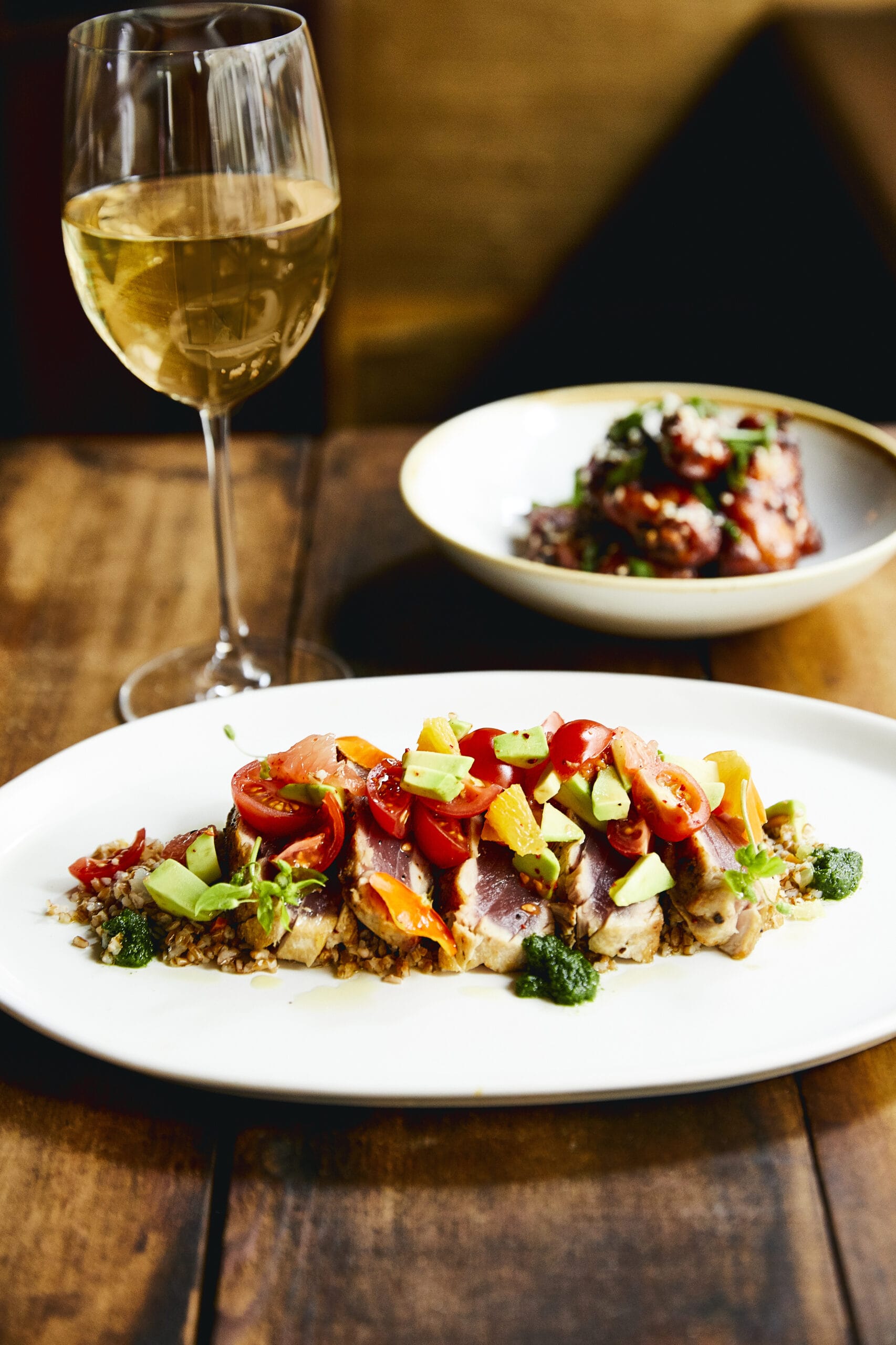
Lane has long been inspired by other farm-to-table pioneers, mentioning Dan Barber of Blue Hill Farm north of Manhattan, who runs a restaurant, working farm, and consulting company supporting sustainable agriculture and world food systems. Barber’s work motivated Lane to make his own polenta, which involves growing the corn, threshing it, milling it, and making it into a smooth boiled cornmeal porridge. The result is heavenly, quite unlike the commercial ready-made versions available in supermarkets.
Lane was hired as the Executive Chef at Portland’s Red Star Tavern in 2016 with the promise of bringing “lighter and brighter” food to the menus. Red Star Tavern is what Lane calls a “modern tavern,” with modern tavern fare. “Tavern fare” is traditionally comfort food and meats and the “modern” twist to that, says Lane, is “providing balance to heavier dishes.” He continues, “It’s really easy to use butter and rich sauces, but you also need acid, seasoning, and freshness.” For example, the Red Star Tavern lunch menu features a perennially popular mac-n-cheese dish, to which Lane adds pickled peppers. “The pickling juice cuts through the richness,” he says. “It’s nuances like that that tweak the traditional pub food and lighten it up.”
Lane’s wife is influential in his focus on healthier habits at home as well. “My wife keeps us on the straight and narrow,” he says, referring to the couple’s three children ages 14, 8, and 5. “Food is a big thing in our house,” he continues, “but I can’t do the kind of food I do at the tavern at home.” Instead, Lane and his wife focus on a diet low in gluten and dairy, using their CSA (Community Supported Agriculture) shares from Gathering Together Farm, and making soups for the week ahead. And although it’s difficult with his schedule, Lane also commits to a signature ritual from his childhood: sitting down together for dinner every night.
Lane addresses Portland’s solid foothold in the farm-to-table movement. “In the beginning,” he says, “farmers didn’t know how to connect direct and we [chefs] didn’t know how to find farmers. Now it’s easy, it’s all set up by these great chefs who made it all happen. When I got into this business I never thought we’d see what’s happening now, with chefs interacting directly with farmers and foragers.”
The role of the forager, while limited, provides an opportunity to create menus with unique intrigue. “The foragers bring us berries, mushrooms, wild plums, sour plums, watercress, and sorrel,” Lane says. “The products are short-lived, but we use them whenever we can get them. A bright lemony wood sorrel or the pungent flavor of wild watercress—they’re just so unique.” The products are available unpredictably, based on seasons and weather, and thus provide an unusual challenge to chefs, but the results are worth the extra inventiveness required.
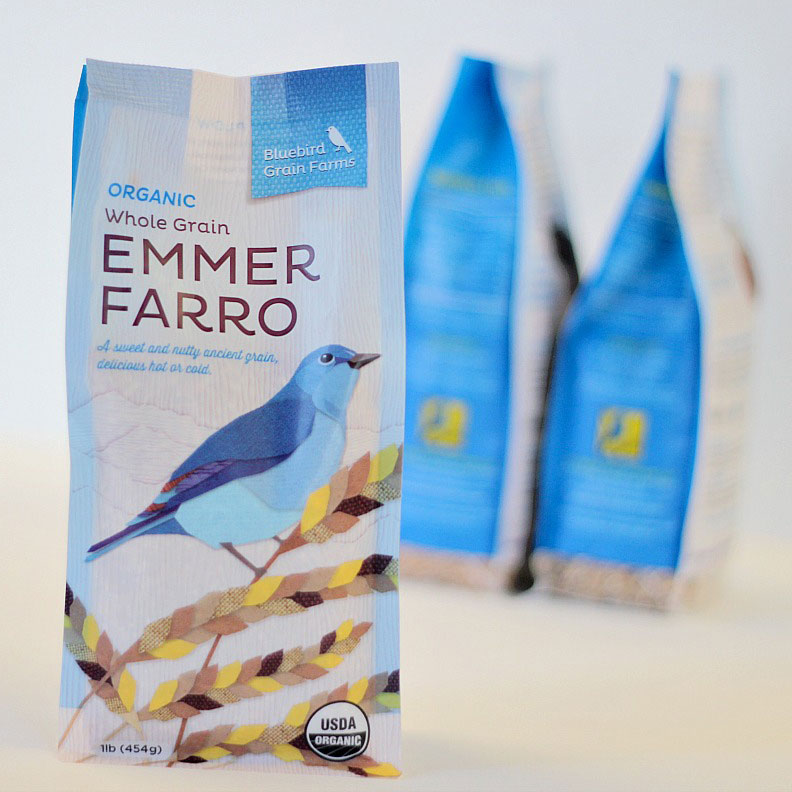 Lane became acquainted with Bluebird Grain Farms products in 2008, through Provista Specialty Foods. “I started using the organic whole grain emmer farro,” he says, because of its versatility. “At first I was just connecting it with lamb, because it’s such a natural fit with lamb.” But then, Lane says, “You can do so many other things with it. I started studding it with dried fruit or nuts, or arugula and roasted beets. It’s a warm salad or a cold salad. You can marinate it and it absorbs the flavor. In the summer you add tomatoes, or you add steak and kale for bolster. There’s just so much you can do with it.” The Red Star Tavern dinner menu currently features a lamb meatball, with ground lamb and smoked farro.
Lane became acquainted with Bluebird Grain Farms products in 2008, through Provista Specialty Foods. “I started using the organic whole grain emmer farro,” he says, because of its versatility. “At first I was just connecting it with lamb, because it’s such a natural fit with lamb.” But then, Lane says, “You can do so many other things with it. I started studding it with dried fruit or nuts, or arugula and roasted beets. It’s a warm salad or a cold salad. You can marinate it and it absorbs the flavor. In the summer you add tomatoes, or you add steak and kale for bolster. There’s just so much you can do with it.” The Red Star Tavern dinner menu currently features a lamb meatball, with ground lamb and smoked farro.

“We’re lucky to have smart diners,” says Lane of his Portland and visiting clientele. “We get people looking for nuances and twists. We want to highlight for them the best of what we offer in the Northwest.” To this end, Lane works closely with Red Star Tavern’s head bartender, Brandon Lockman, to connect the dots between food and drink, so whether clients are ordering a local craft beer or a high-end Japanese whiskey, their drinks and food work well together. “People can come in and get some of the best beers, wines, and craft cocktails available, paired with seasonal menus,” Lane says. “We’ve got a great team working hard to provide that experience.”
Red Star Tavern, Lane continues, “has remained relevant. We provide a quintessential modern Pacific Northwest tavern experience.”
To learn more about Red Star Tavern, visit their website. (Sadly they closed since this post was written).
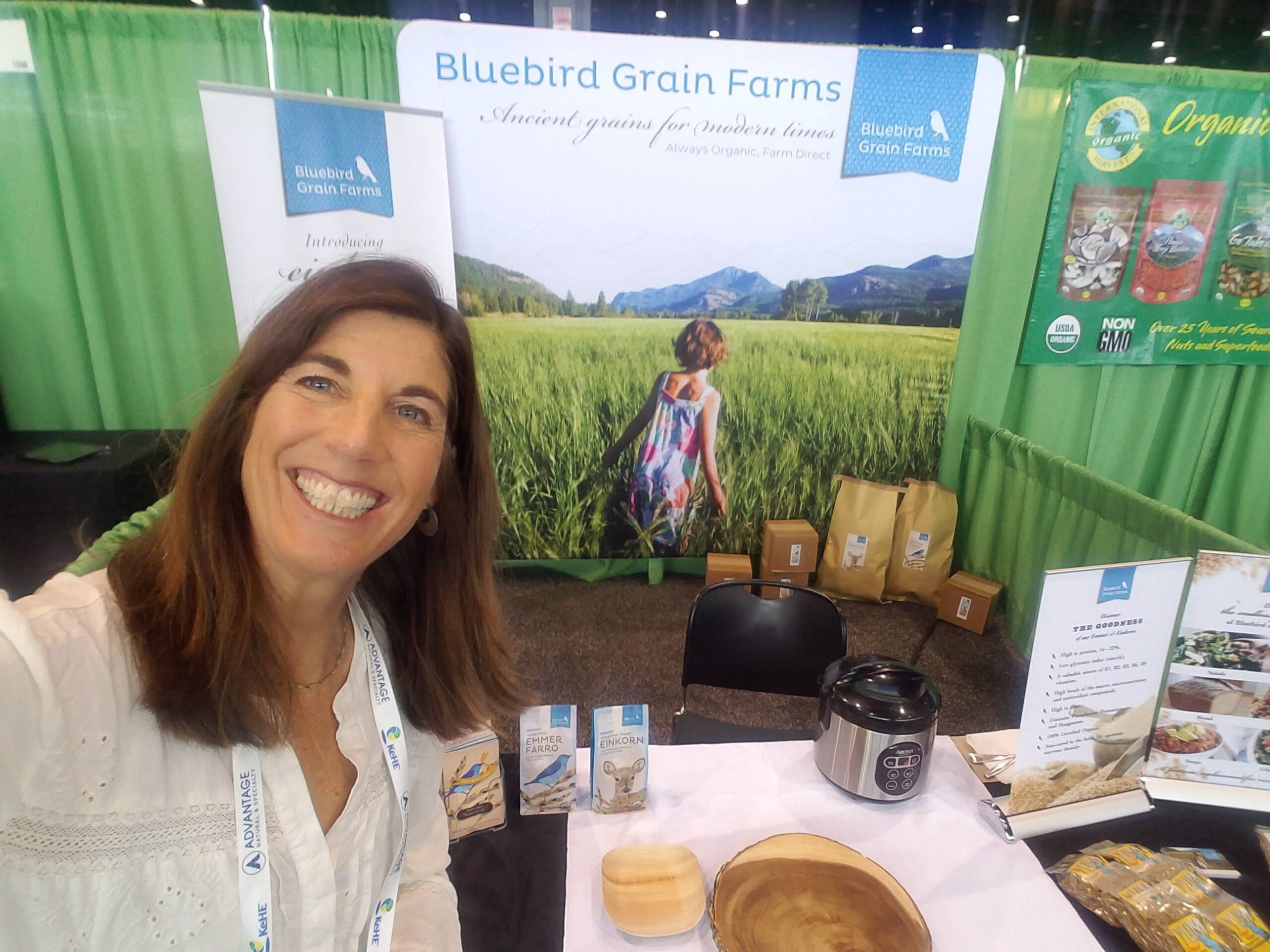
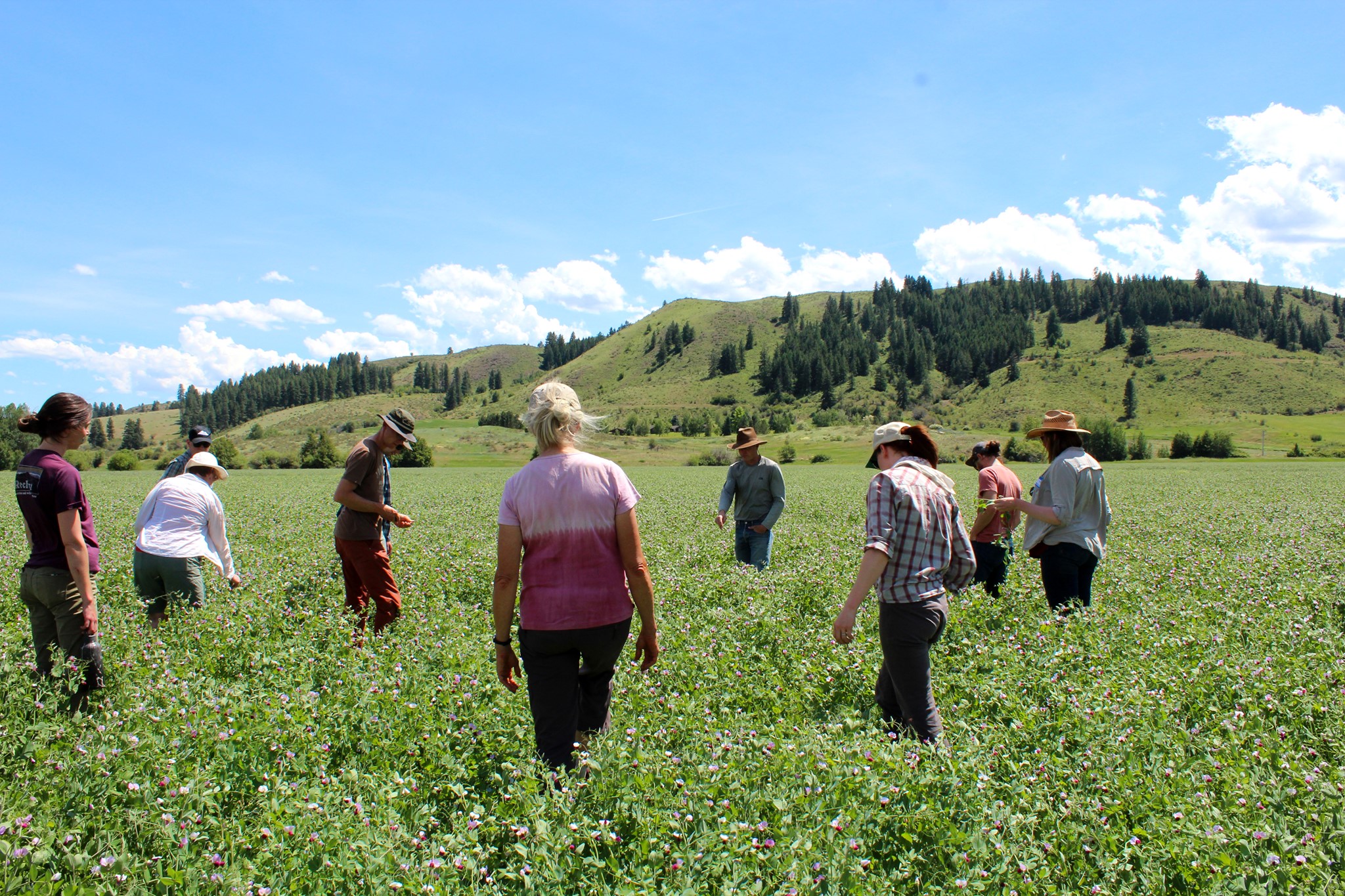
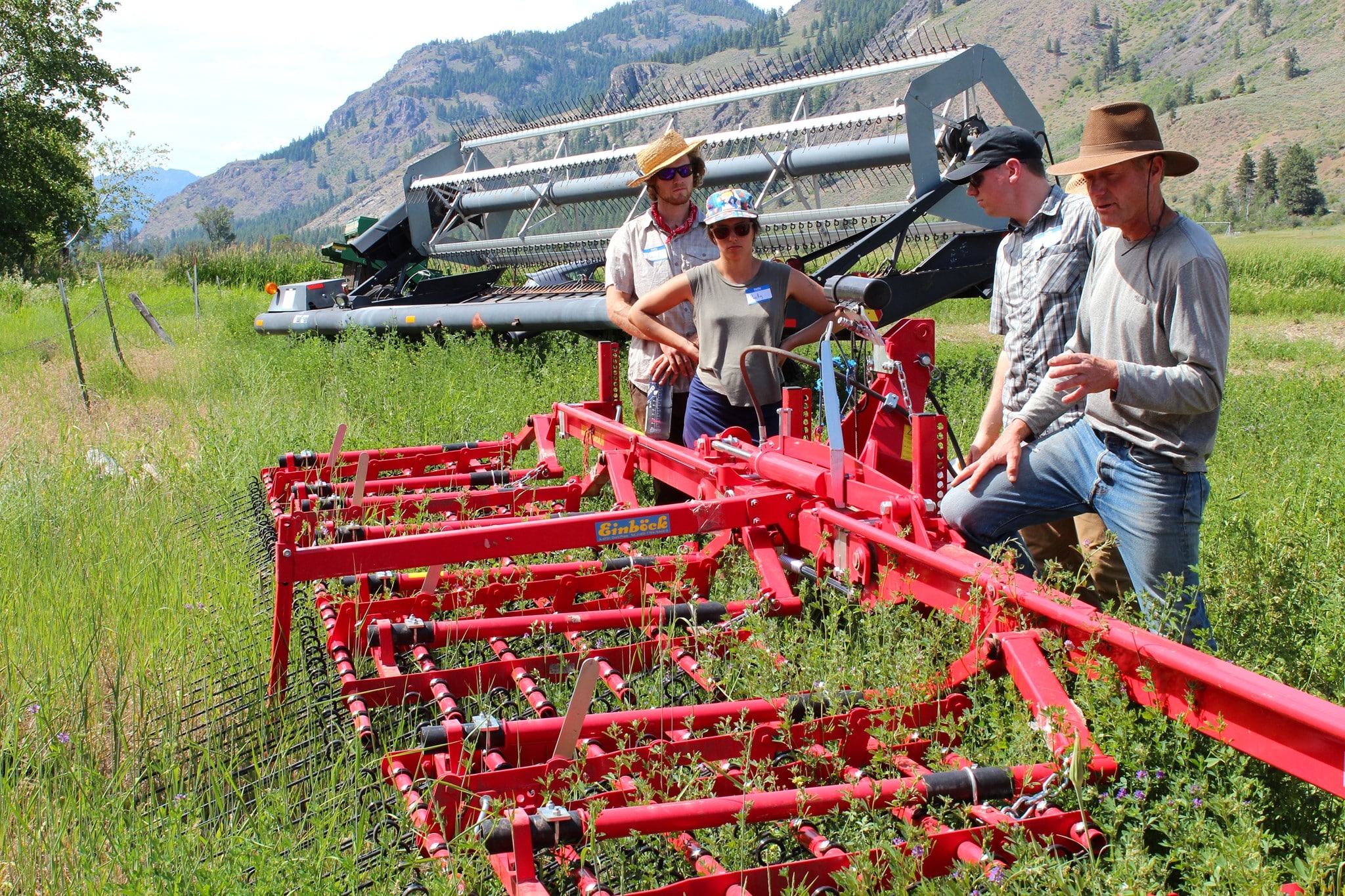


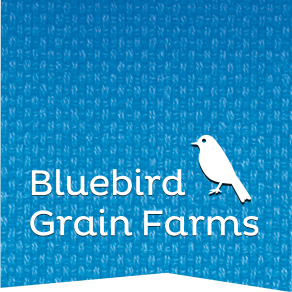

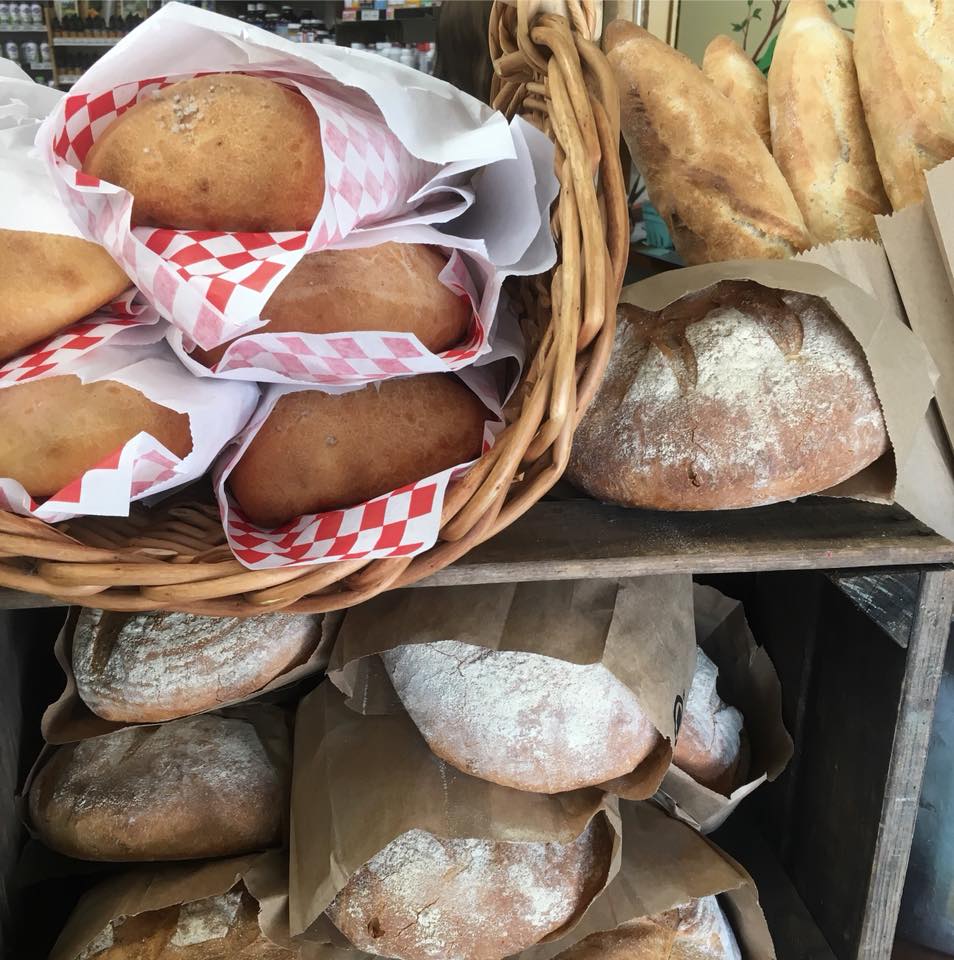
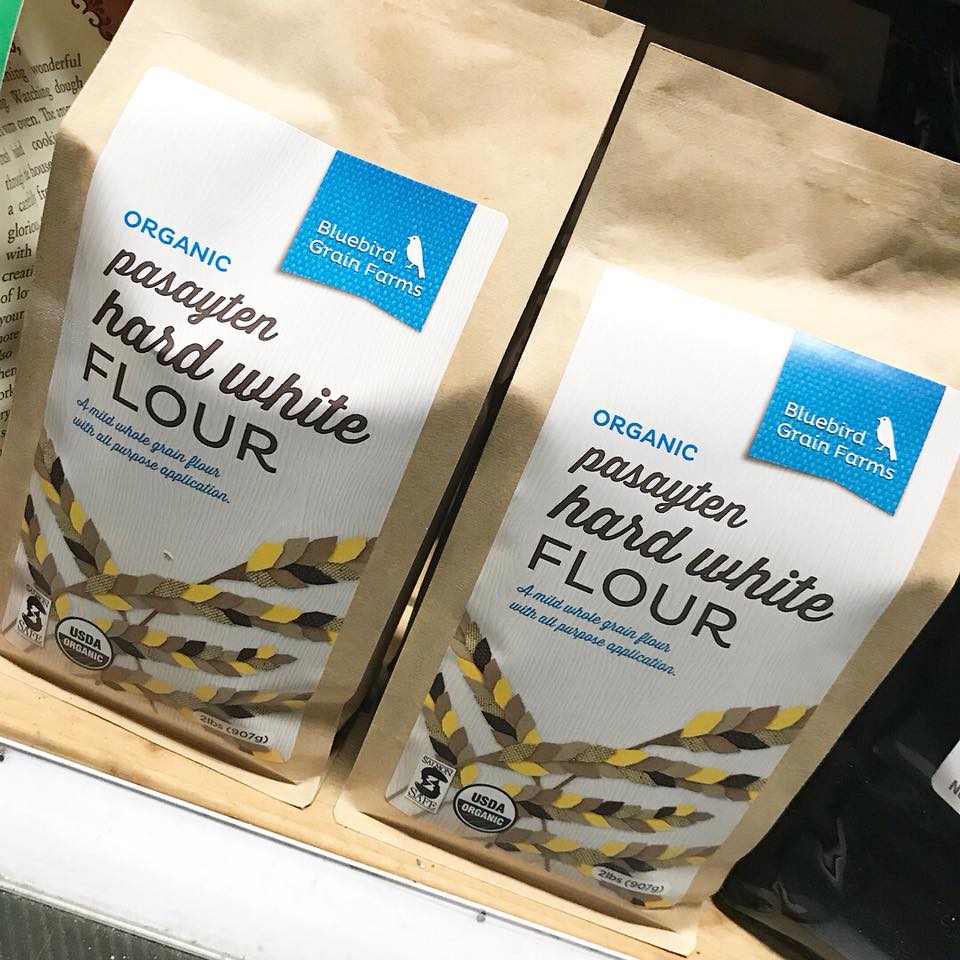 Interspersed with farming, marrying, and bearing three children, Gibbs started fermenting vegetables and producing three flavors of live sauerkraut as a value-added product for the farm, as well as teaching for WVC and managing the campus greenhouse. It was during her tenure at WVC that Gibbs first encountered
Interspersed with farming, marrying, and bearing three children, Gibbs started fermenting vegetables and producing three flavors of live sauerkraut as a value-added product for the farm, as well as teaching for WVC and managing the campus greenhouse. It was during her tenure at WVC that Gibbs first encountered 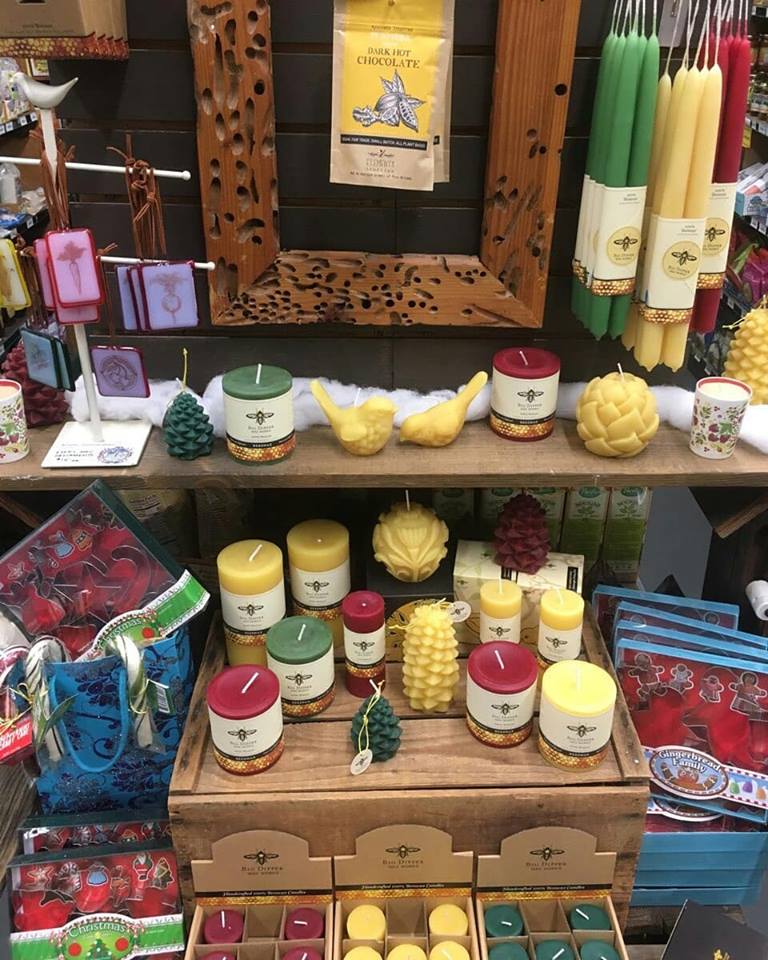 Sage Mountain Natural Foods is a feast for the senses for anyone who visits, from local to tourist, and even those just passing through and unlikely to buy the ingredients to make a meal from scratch can find many delights to take home, from soaps to wildflower mixes to gifts to deli and bakery treats. Local shoppers can stock up on everything from bulk cleaning and beauty products to grains to dairy to produce. And shop for produce they have indeed. Gibbs says “Our produce sales are six times what they were when I first bought the store.”
Sage Mountain Natural Foods is a feast for the senses for anyone who visits, from local to tourist, and even those just passing through and unlikely to buy the ingredients to make a meal from scratch can find many delights to take home, from soaps to wildflower mixes to gifts to deli and bakery treats. Local shoppers can stock up on everything from bulk cleaning and beauty products to grains to dairy to produce. And shop for produce they have indeed. Gibbs says “Our produce sales are six times what they were when I first bought the store.”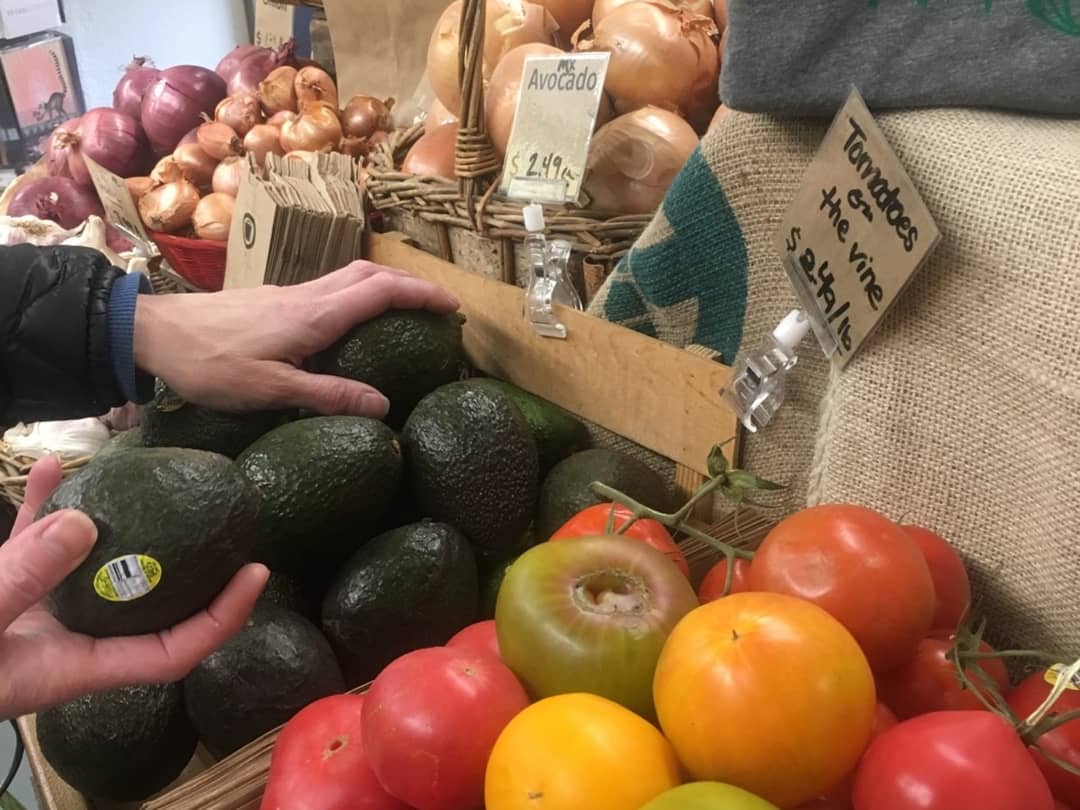 To support the store’s increased emphasis on produce, Gibbs also installed a new cooler and assigned produce to a larger area. She keeps prices low by participating in a natural food cooperative that gives her access to steeper discounts on fruits and vegetables. And, Gibbs says somewhat apologetically, “I do the produce myself. I like to control the display and how it looks.” She is, however, training another store employee to pinch-hit for her on occasion. “We have the best produce in town and people come in for that,” Gibbs says, adding that “Dan’s Food Market [another local grocer] also has a great selection.”
To support the store’s increased emphasis on produce, Gibbs also installed a new cooler and assigned produce to a larger area. She keeps prices low by participating in a natural food cooperative that gives her access to steeper discounts on fruits and vegetables. And, Gibbs says somewhat apologetically, “I do the produce myself. I like to control the display and how it looks.” She is, however, training another store employee to pinch-hit for her on occasion. “We have the best produce in town and people come in for that,” Gibbs says, adding that “Dan’s Food Market [another local grocer] also has a great selection.”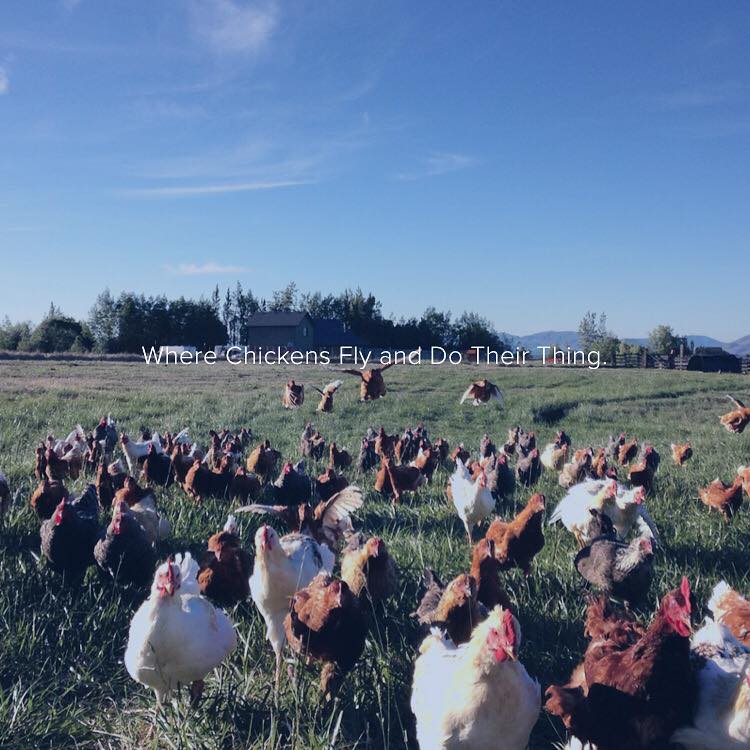 “We believe that farmers are an essential part of a healthy community,” Gibbs continues, “and we want to keep our farmers viable. We also want to keep the money in our local economy. So we buy from local farmers as our first option, and Charlie’s [an independent regional produce company] next, then other Pacific Northwest growers, then California growers.”
“We believe that farmers are an essential part of a healthy community,” Gibbs continues, “and we want to keep our farmers viable. We also want to keep the money in our local economy. So we buy from local farmers as our first option, and Charlie’s [an independent regional produce company] next, then other Pacific Northwest growers, then California growers.”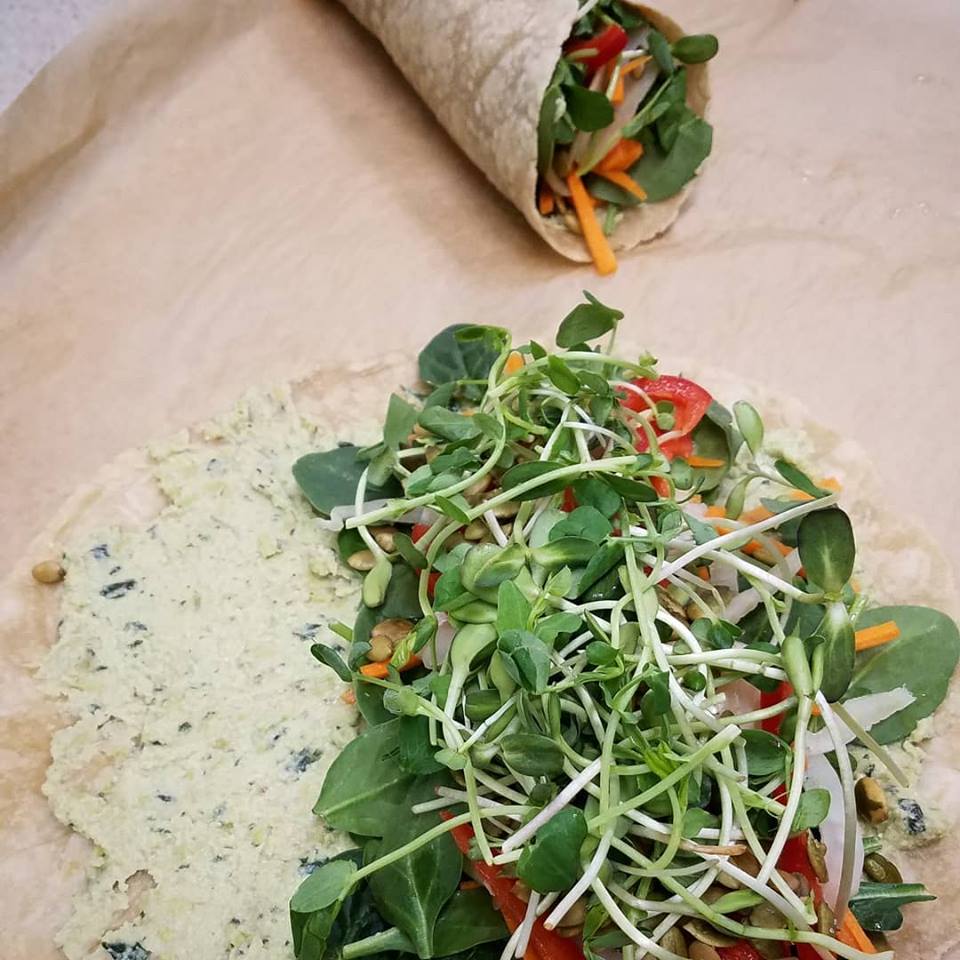 Through her work at Sage Mountain, Gibbs has learned how many people really do cook from scratch, despite popular impressions that Americans are all about quick and easy these days. “We’ve offered quick meal packages,” Gibbs says, “but we don’t sell a lot of them. People are buying really basic ingredients from us.” Some of those basic ingredients are somewhat surprising, like
Through her work at Sage Mountain, Gibbs has learned how many people really do cook from scratch, despite popular impressions that Americans are all about quick and easy these days. “We’ve offered quick meal packages,” Gibbs says, “but we don’t sell a lot of them. People are buying really basic ingredients from us.” Some of those basic ingredients are somewhat surprising, like 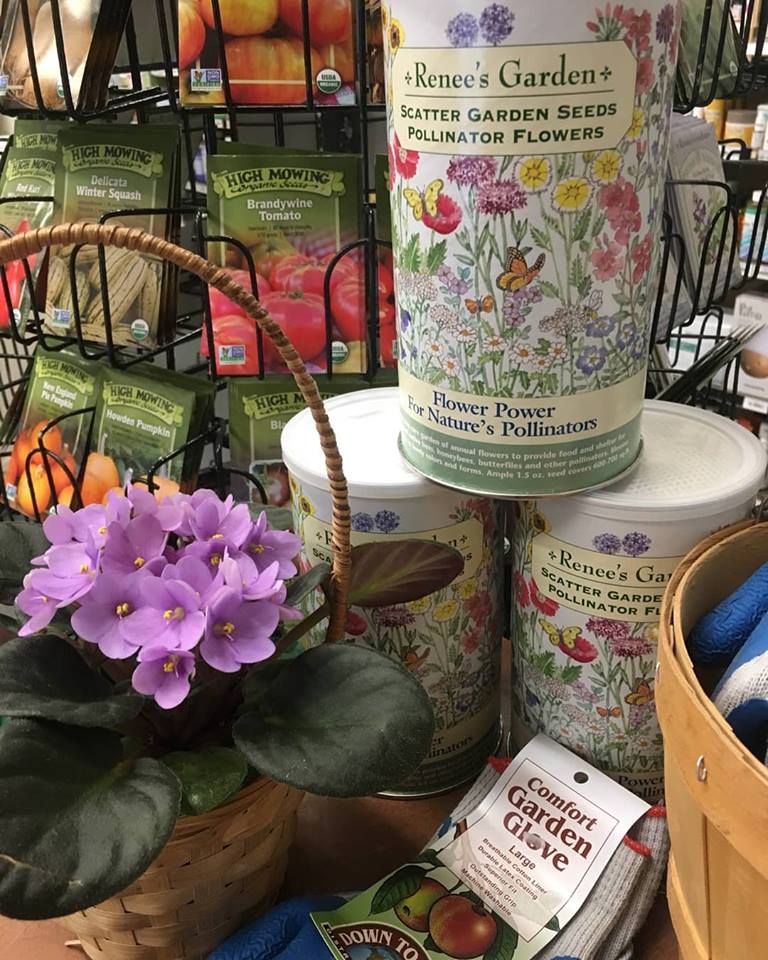
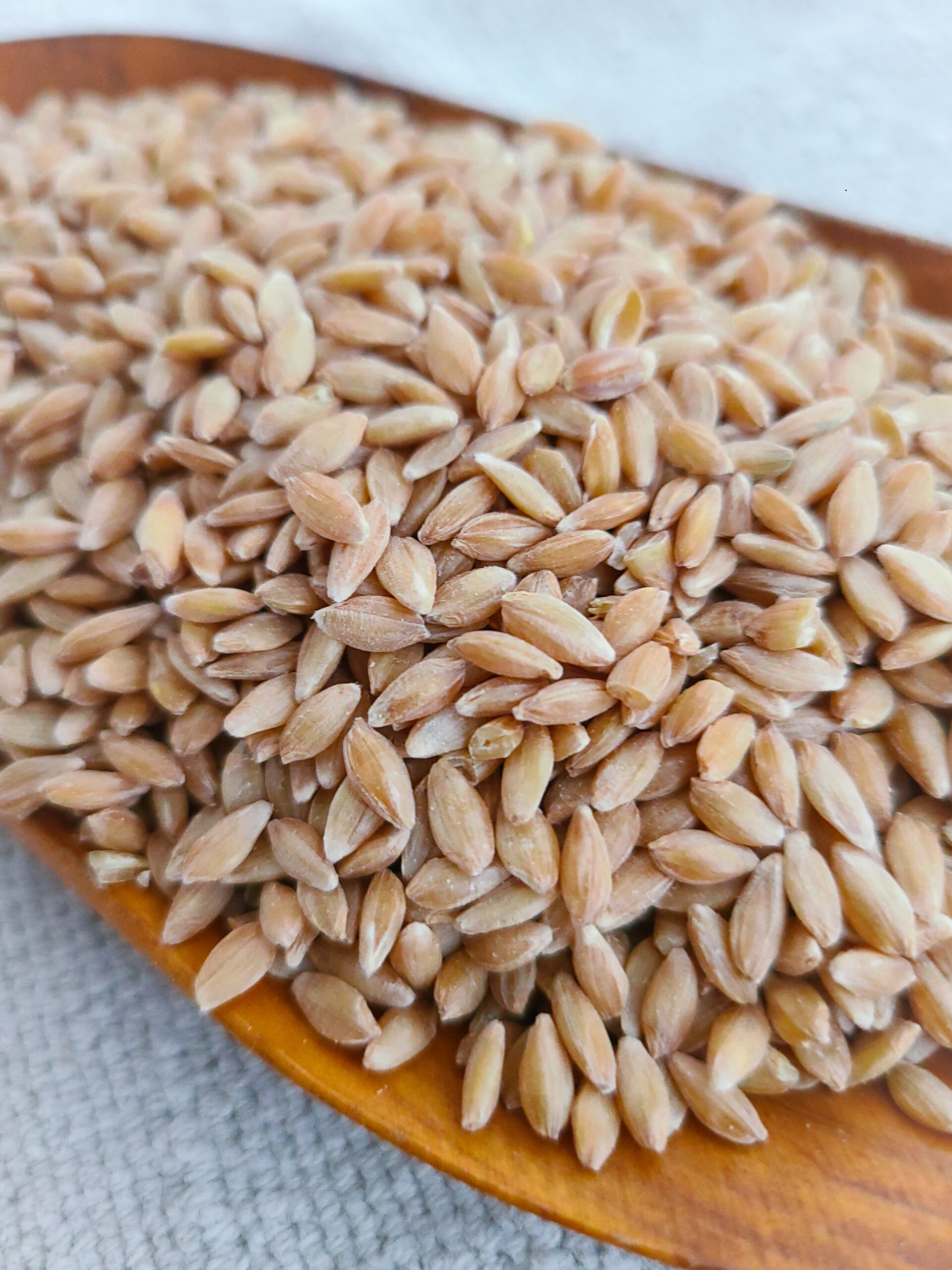
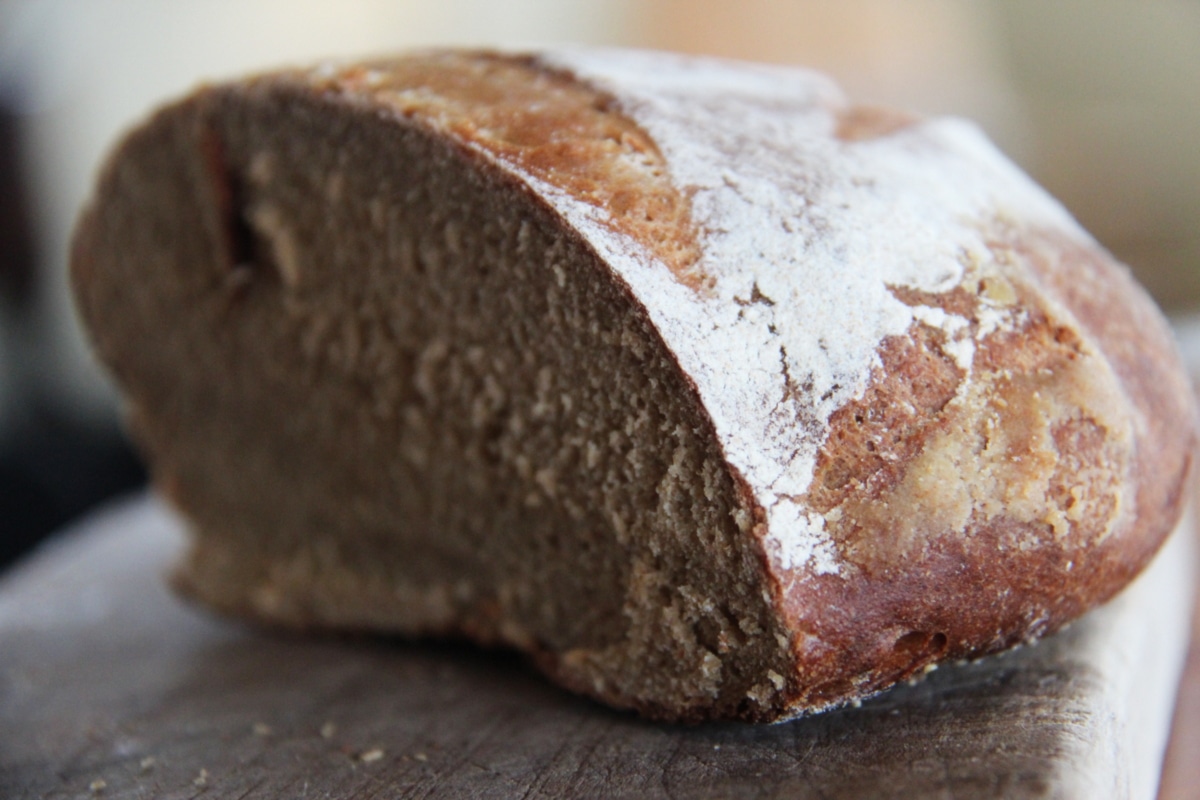



 Lane became acquainted with
Lane became acquainted with 
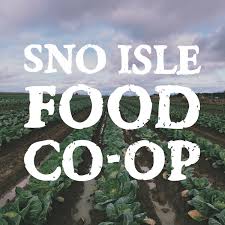
 Davis grew up in the kitchen with her grandmother and says that her grandfather always had an impressive tomato garden, giving her an early taste for the perfection of a home-grown, sun-ripened tomato: a product rarely found in large mainstream grocery stores but readily available in season in co-ops like Sno-Isle. Although her immediate family was not focused on local or organic foods, says Davis, “they did put a lot of energy into preparing whole foods for the family to enjoy together. Those hours spent in the kitchen as a young person undoubtedly shaped my love for food and my desire to improve our food system.”
Davis grew up in the kitchen with her grandmother and says that her grandfather always had an impressive tomato garden, giving her an early taste for the perfection of a home-grown, sun-ripened tomato: a product rarely found in large mainstream grocery stores but readily available in season in co-ops like Sno-Isle. Although her immediate family was not focused on local or organic foods, says Davis, “they did put a lot of energy into preparing whole foods for the family to enjoy together. Those hours spent in the kitchen as a young person undoubtedly shaped my love for food and my desire to improve our food system.” Sno-Isle is invested not just in the health and longevity of individuals, but also that of communities. To that end, Sno-Isle offers
Sno-Isle is invested not just in the health and longevity of individuals, but also that of communities. To that end, Sno-Isle offers 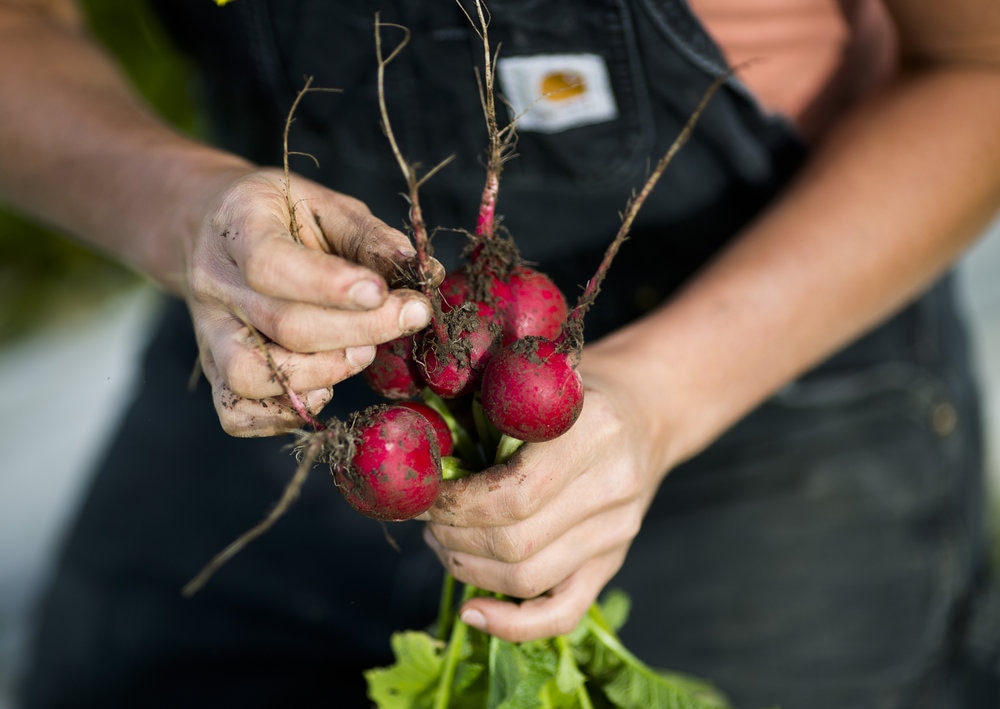
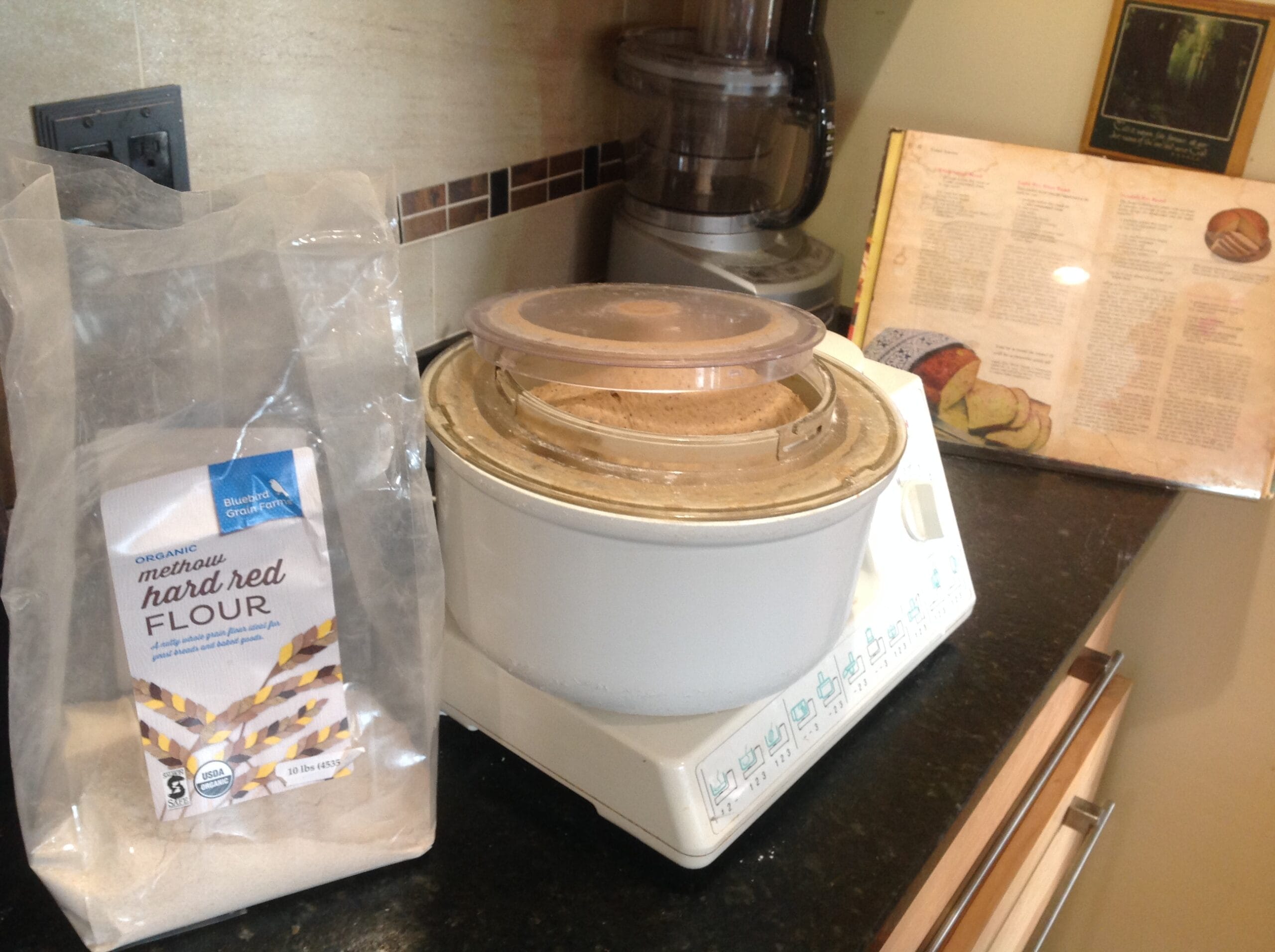 Judy notes that she and Gail routinely substitute
Judy notes that she and Gail routinely substitute 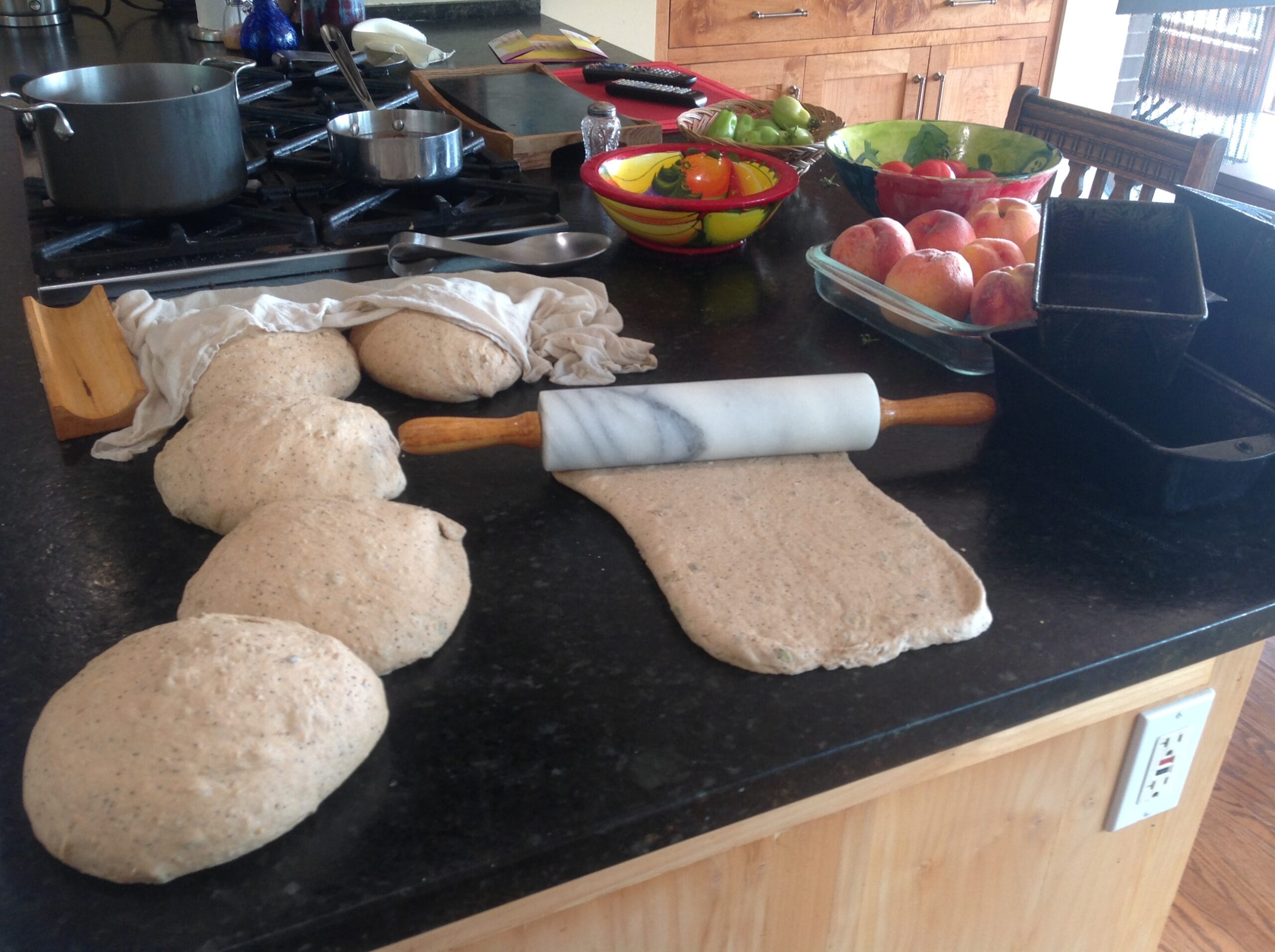 Judy and Gail’s home on Whidbey Island is not all that far from the Methow Valley as the crow flies, and although delivery service is available, Judy tends to rely on her daughter Susan’s frequent work trips to the west side of the state to keep her supplied in Bluebird Grains. Of the flours, whole grains, and cereals Judy says, “It’s probably the most local product that I know about.”
Judy and Gail’s home on Whidbey Island is not all that far from the Methow Valley as the crow flies, and although delivery service is available, Judy tends to rely on her daughter Susan’s frequent work trips to the west side of the state to keep her supplied in Bluebird Grains. Of the flours, whole grains, and cereals Judy says, “It’s probably the most local product that I know about.”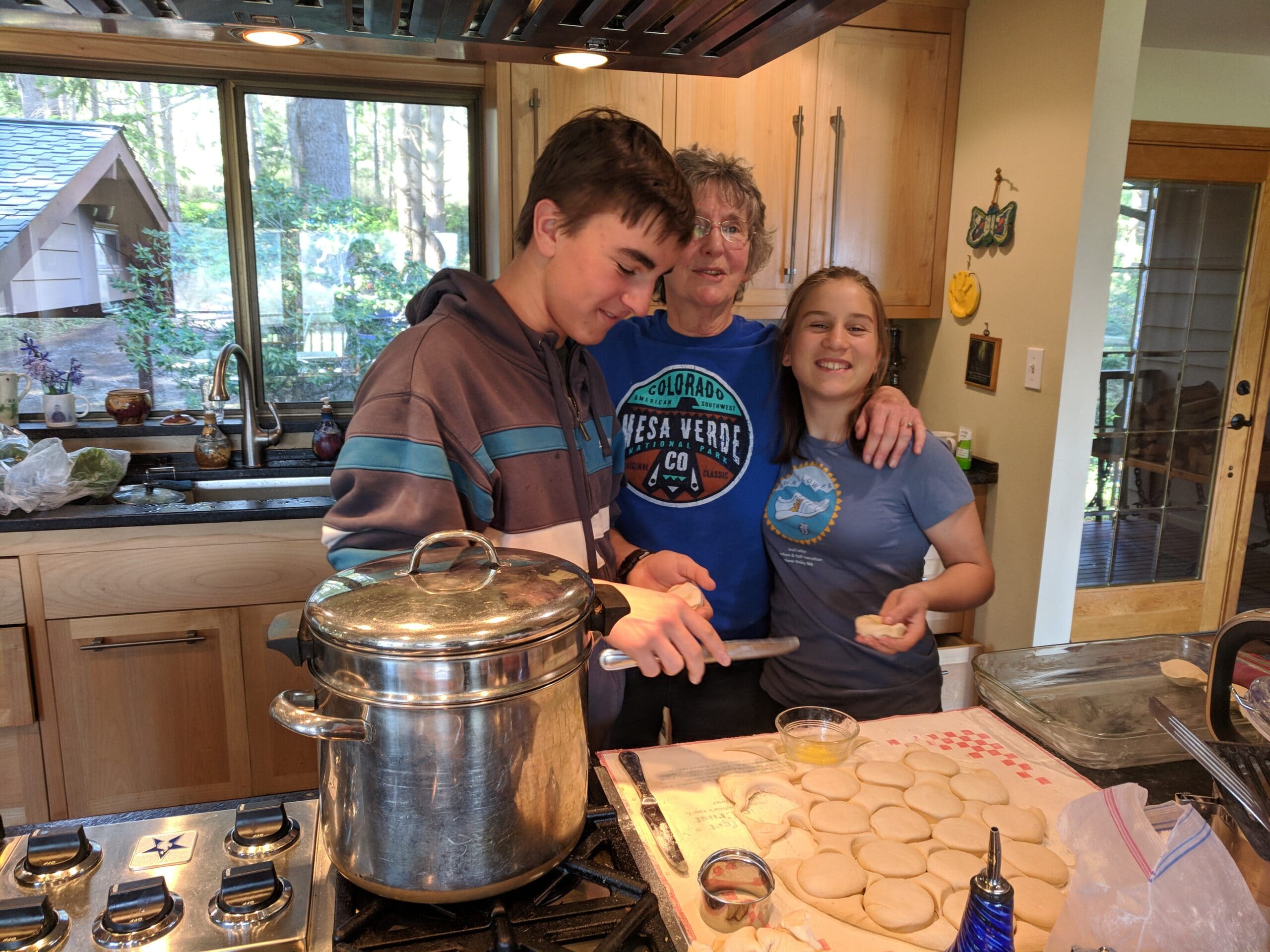
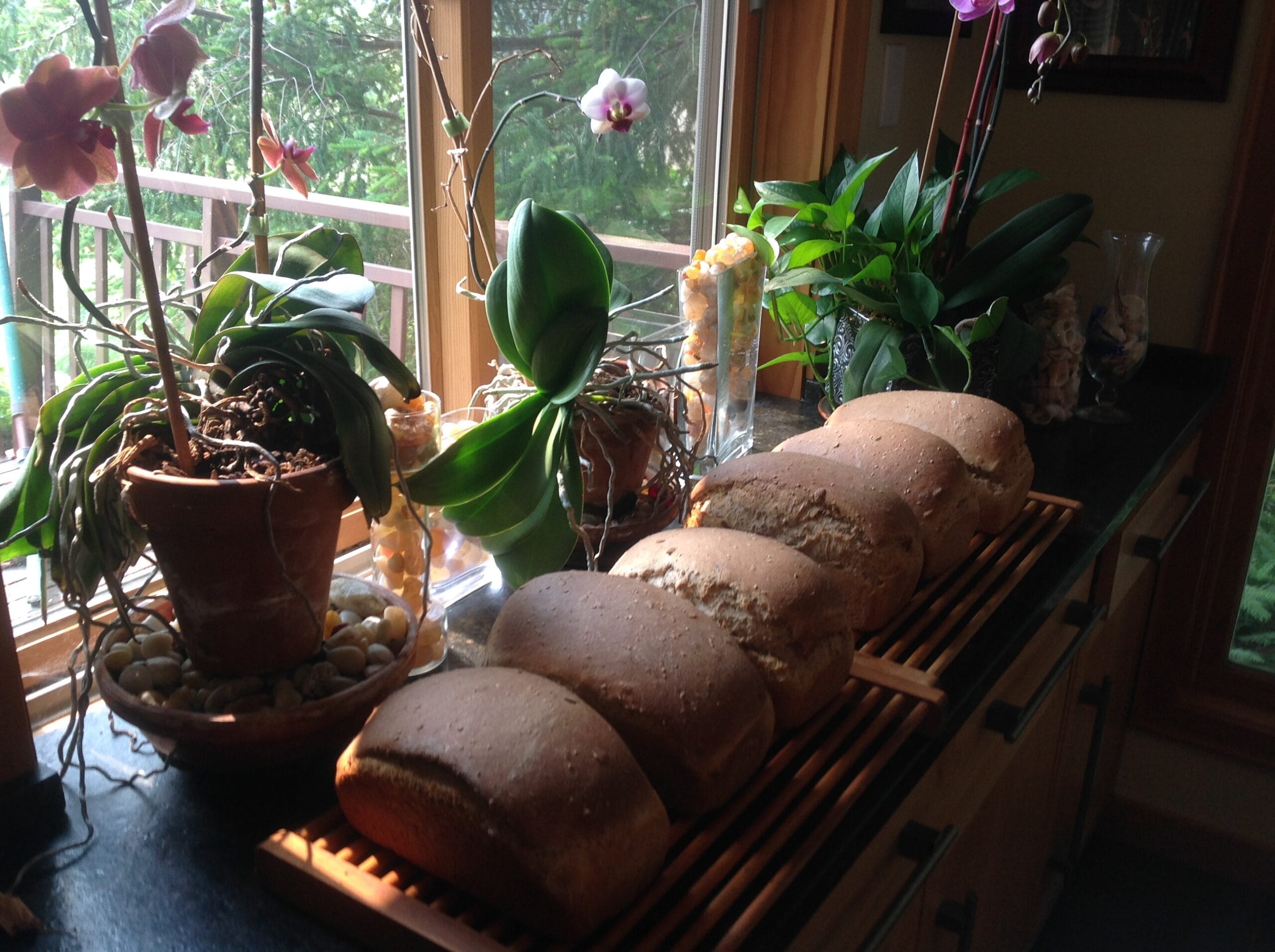
 We have also added a new social media coordinator position, daughter Larkin Lucy who is managing and developing content for our social media accounts. It is fun to have the younger generation plug into this important marketing role and nice to have “the kids” interested in the business.
We have also added a new social media coordinator position, daughter Larkin Lucy who is managing and developing content for our social media accounts. It is fun to have the younger generation plug into this important marketing role and nice to have “the kids” interested in the business. The “farm to table” movement has swept the country by storm in recent years, but for those brought up like Chef Cameron Slaugh (rhymes with “raw”), farm to table isn’t a movement–it is a way of life. Raised on a rural Utah subsistence farm, Slaugh grew up eating gorgeous produce served raw or prepared simply, freshly-laid eggs, and whole grains. So even while his peers were slurping up popsicles as an after-dinner treat, Slaugh found pure pleasure in the form of a warm vine-ripened tomato or a handful of berries for dessert. And at the impressionable age of 8, Slaugh began seeking inspiration in the kitchen, surrounded by the bounty of his family’s farm and the freshest ingredients he could ever hope to handle.
The “farm to table” movement has swept the country by storm in recent years, but for those brought up like Chef Cameron Slaugh (rhymes with “raw”), farm to table isn’t a movement–it is a way of life. Raised on a rural Utah subsistence farm, Slaugh grew up eating gorgeous produce served raw or prepared simply, freshly-laid eggs, and whole grains. So even while his peers were slurping up popsicles as an after-dinner treat, Slaugh found pure pleasure in the form of a warm vine-ripened tomato or a handful of berries for dessert. And at the impressionable age of 8, Slaugh began seeking inspiration in the kitchen, surrounded by the bounty of his family’s farm and the freshest ingredients he could ever hope to handle. “Everything really started for me there,” says Slaugh. “I loved the way that everything changed with the seasons at Park Avenue,” he says. “The uniforms, the menu, the dining room decor. It was very refreshing.” Mentoring with the acclaimed Chef Craig Koketsu at Park Avenue, Slaugh learned to maximize the flavors of each season’s freshest available produce.
“Everything really started for me there,” says Slaugh. “I loved the way that everything changed with the seasons at Park Avenue,” he says. “The uniforms, the menu, the dining room decor. It was very refreshing.” Mentoring with the acclaimed Chef Craig Koketsu at Park Avenue, Slaugh learned to maximize the flavors of each season’s freshest available produce. But most of all, Eleven Madison’s lasting impact on Slaugh were the lessons he learned about cooking from the heart. “In an intense environment like Eleven Madison you can forget about that,” Slaugh says, “but the best advice I ever got there was to cook with heart and soul. Your technique can be flawless, but the best food has to also be delicious, and you can really only get that if you invest yourself in the process.”
But most of all, Eleven Madison’s lasting impact on Slaugh were the lessons he learned about cooking from the heart. “In an intense environment like Eleven Madison you can forget about that,” Slaugh says, “but the best advice I ever got there was to cook with heart and soul. Your technique can be flawless, but the best food has to also be delicious, and you can really only get that if you invest yourself in the process.” Slaugh and his wife eventually moved back west to his mother’s hometown, Los Angeles, and Slaugh began cooking at
Slaugh and his wife eventually moved back west to his mother’s hometown, Los Angeles, and Slaugh began cooking at 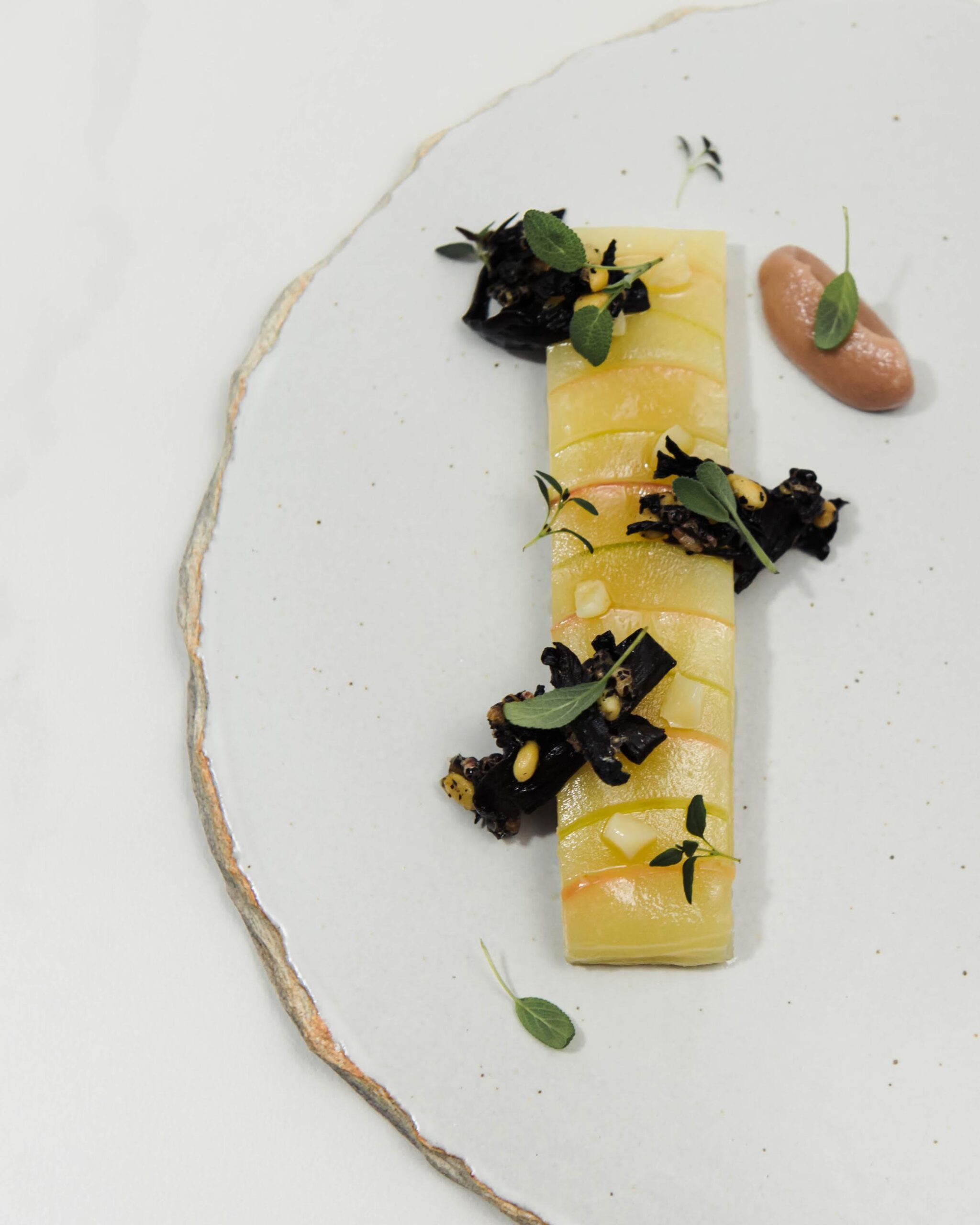 Meanwhile,
Meanwhile, 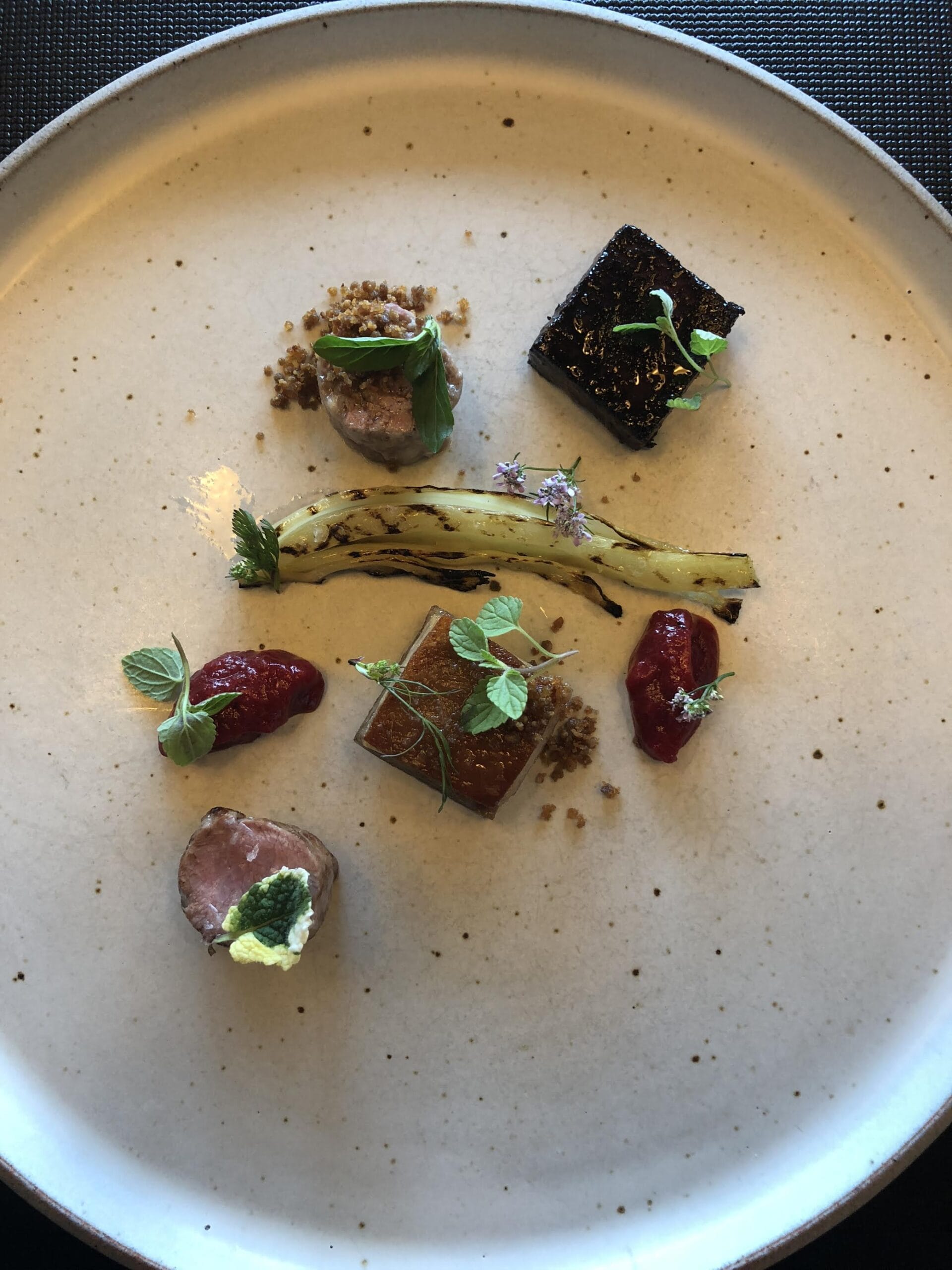 Slaugh continues, “Bluebird sent me some samples–
Slaugh continues, “Bluebird sent me some samples–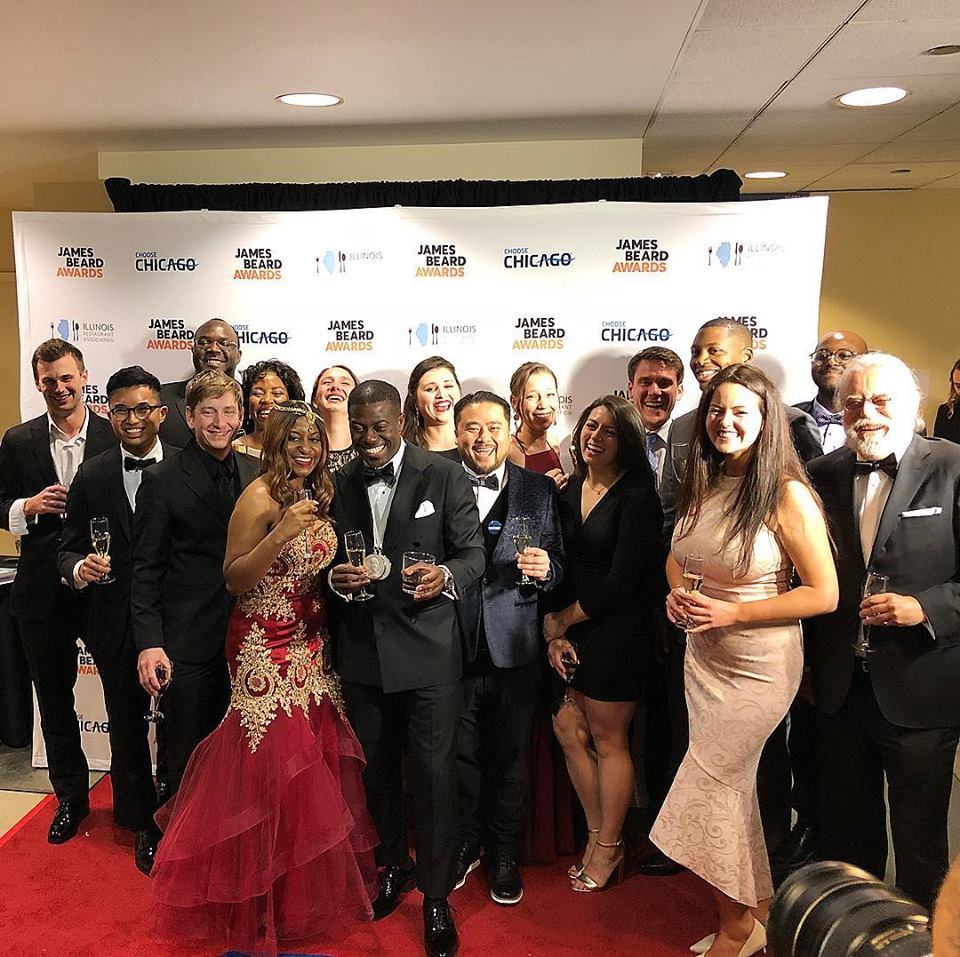 May is always a busy month for us at Bluebird, but we have been loving the beautiful wildflowers and steady soil moisture in our fields. Our thoughts go out to those who have been adversely affected by the recent flooding in eastern Okanogan County. Thank you to all who work hard to keep our communities safe during events like these! Here are a few notes on what’s been going on at Bluebird the past few months:
May is always a busy month for us at Bluebird, but we have been loving the beautiful wildflowers and steady soil moisture in our fields. Our thoughts go out to those who have been adversely affected by the recent flooding in eastern Okanogan County. Thank you to all who work hard to keep our communities safe during events like these! Here are a few notes on what’s been going on at Bluebird the past few months: to recover from a race! Stew served over 1,000 of these bowls at the event. If you’d like Dietz Catering to help out at your event in the Methow Valley (they do an amazing job with weddings), you can get in touch
to recover from a race! Stew served over 1,000 of these bowls at the event. If you’d like Dietz Catering to help out at your event in the Methow Valley (they do an amazing job with weddings), you can get in touch  They say some things are so addictive you can get hooked on your very first try. Patrick Jeannette (aka “Grampy Pat”) had this experience the first time he sampled a true Alaskan sourdough bread, and he’s had nary a sourdough-free day since.
They say some things are so addictive you can get hooked on your very first try. Patrick Jeannette (aka “Grampy Pat”) had this experience the first time he sampled a true Alaskan sourdough bread, and he’s had nary a sourdough-free day since.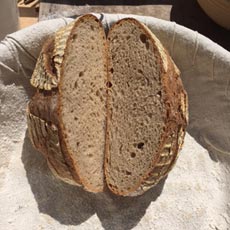 Still, many years passed between those Bridgford rolls and Grampy Pat’s signature sourdoughs–years that Grampy Pat spent, in his wife’s words, as a “serial entrepreneur.” Life moved at a fast pace in the 70s, says Grampy Pat, and after a couple of failed ventures a successful printing business allowed him to “buy the big house on the hill for my wife and 2 kids,” before migrating north to Alaska to use his design minor to create fabulous kitchens for affluent Alaskans. When Grampy Pat had completed a kitchen, he always cooked the first meal in it for his clients. One night a client said “That’s great–you cook dinner and I’ll bake Alaskan sourdough bread to go with it.”
Still, many years passed between those Bridgford rolls and Grampy Pat’s signature sourdoughs–years that Grampy Pat spent, in his wife’s words, as a “serial entrepreneur.” Life moved at a fast pace in the 70s, says Grampy Pat, and after a couple of failed ventures a successful printing business allowed him to “buy the big house on the hill for my wife and 2 kids,” before migrating north to Alaska to use his design minor to create fabulous kitchens for affluent Alaskans. When Grampy Pat had completed a kitchen, he always cooked the first meal in it for his clients. One night a client said “That’s great–you cook dinner and I’ll bake Alaskan sourdough bread to go with it.”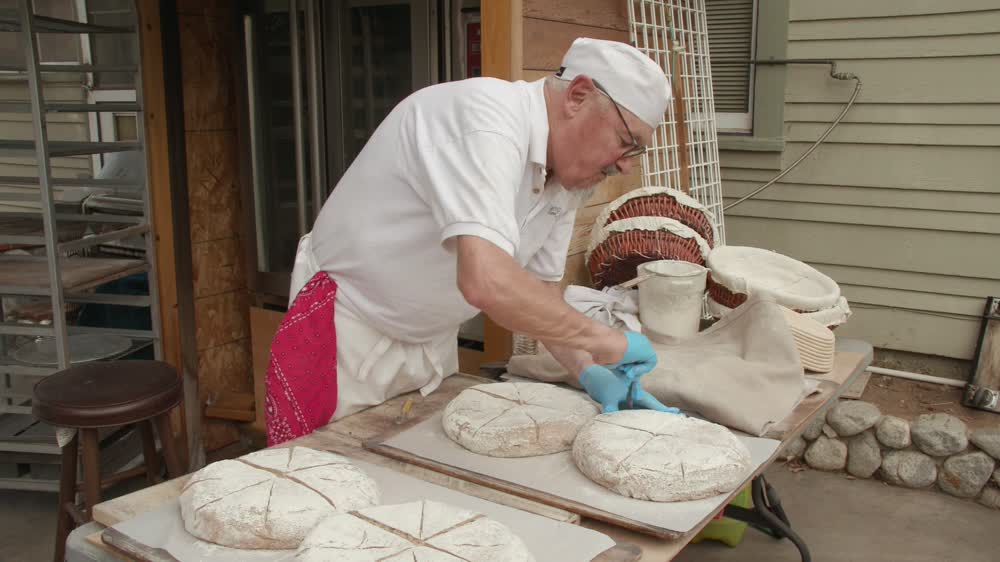

 A few years ago Grampy Pat got the opportunity to bake in a 17th-Century wood-fired oven in Cortona, Italy. It’s a bit of an “Under the Tuscan Sun” memory for Grampy Pat: fresh Italian Asiago cheese, an aged Borolo wine opened the day prior, 16 loaves baked in the village oven, his wife, and friends, in a villa near an olive grove. “It was incredible!” says Grampy Pat, (only he added an expletive before “incredible” for emphasis). “Stupefacente!” the Italians might say. “Amazing!” Read more
A few years ago Grampy Pat got the opportunity to bake in a 17th-Century wood-fired oven in Cortona, Italy. It’s a bit of an “Under the Tuscan Sun” memory for Grampy Pat: fresh Italian Asiago cheese, an aged Borolo wine opened the day prior, 16 loaves baked in the village oven, his wife, and friends, in a villa near an olive grove. “It was incredible!” says Grampy Pat, (only he added an expletive before “incredible” for emphasis). “Stupefacente!” the Italians might say. “Amazing!” Read more 
 love of geology with a job in Alaska. Best of luck Kevin, and thanks for all your hard work! If you or anyone you know is interested, you can review the full position description
love of geology with a job in Alaska. Best of luck Kevin, and thanks for all your hard work! If you or anyone you know is interested, you can review the full position description